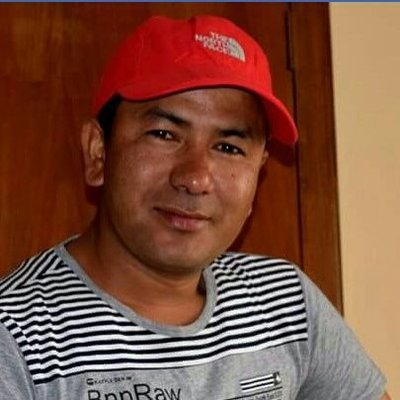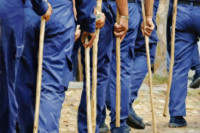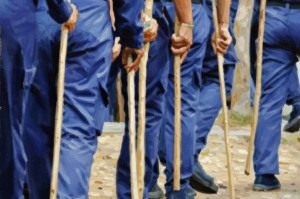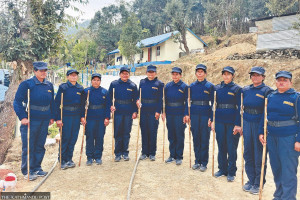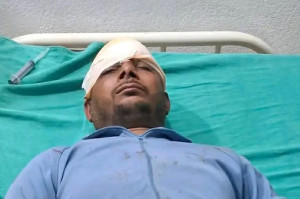Sudurpaschim Province
Villagers suffer in the absence of suspension bridge in Thalara
The people of five local units in Bajhang, Doti and Baitadi districts have been hit hard after floods in October last year destroyed the bridge linking Deura Bazaar and Thalara.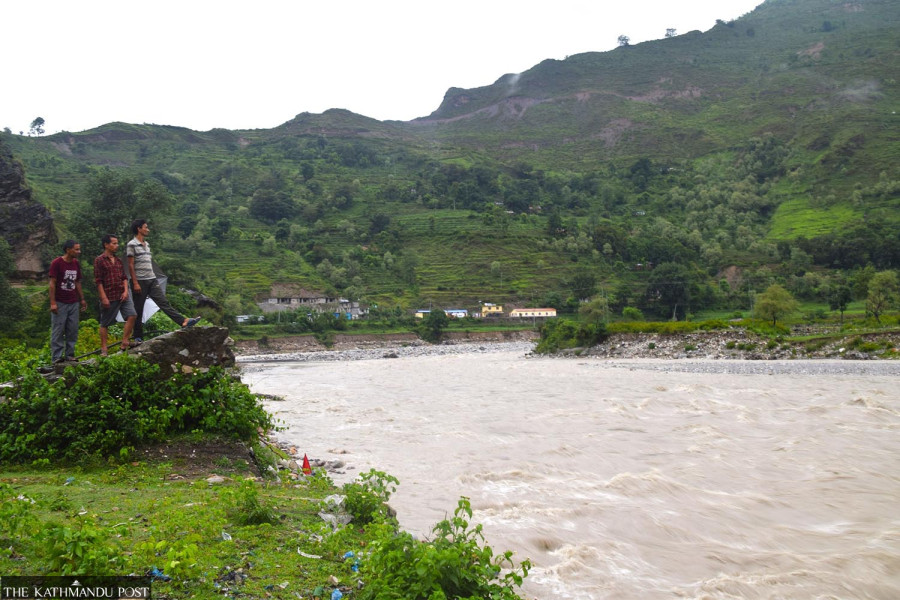
Basant Pratap Singh
Kalawati Devi Joshi, aged 43, of Dangaji village in Thalara Rural Municipality-1 rears buffaloes for livelihood. Until October last year, she used to visit Deura Bazaar to sell milk on a daily basis and use her earnings to buy food and other daily essentials; clothe her children and manage their school expenses.
But Kalawati has not been able to make her daily visits to the market to sell milk since October last year when the unseasonal floods swept away the suspension bridge across the Seti river that links Deura Bazaar with Thalara.
“We used to sell milk in the market each morning and use the money we earned to buy food for the evening. But we have not been able to sell any milk in the last 10 months,” she said.
According to Kalawati, she used to reach Deura Bazaar within 20 minutes through the suspension bridge. But ever since the bridge got swept away, the villagers have had no alternative but to use another suspension bridge at Morail. It now takes the villagers three hours to reach Deura Bazaar via this route.
Deura Bazaar, which lies on the Jaya Prithvi Highway, is around 32km south of the district headquarters, Chainpur.
Not only Kalawati but about 200 farmers in the area are unable to sell their agricultural products, mainly milk, after the October 19 floods destroyed the bridge.
“Many villagers in Thalara-1 rear buffaloes and cows for their livelihood. But we haven’t been able to get our produce to the market for the past nine months. Many villagers are unemployed and a majority of them have already left for various Indian towns and cities for work,” said Chakra Prasad Joshi, a local resident.
According to Ward Chairman of Thalara-1 Rabindra Joshi, the villagers have been hugely affected after the floods swept away the suspension bridge.
“Agriculture is the main source of income for almost all the villagers here,” Joshi said. “The youths in the villages have started going to India as the agricultural products could not get to market.”
The unseasonal October floods last year had destroyed the 120 metre-long bridge, disconnecting Deura Bazaar from Dangaji settlement. Two dairies and sweet shops in Deura have been closed with the halt in milk supply from Dangaji.
“I had to close the dairy as the villagers could not supply milk. I used to collect around 300 to 400 litres of milk per day and supply some to Chainpur as well,” said Kabi Giri, who used to own a dairy shop in Deura Bazaar.
The people of five local units in Bajhang, Doti and Baitadi districts have been affected after the flood destroyed the bridge linking Deura Bazaar and Thalara. The residents of Kedarsyu and Thalara rural municipalities in Bajhang, Sayal and Aadarsha rural municipalities in neighbouring Doti and Sigas Rural Municipality of Baitadi are still using the flood-damaged suspension bridge.
The loss of connectivity has also affected traders from Deura Bazaar who have lost their customers from several villages.
“Around 300 people from various villages visited Deura everyday. The flow of people has now trickled down since there is no bridge. Trade and business in Deura Bazaar have been hit hard,” said Murali Krishna Joshi, a Deura-based trader.
The absence of a bridge has also cut off the locals from easy access to health institutions. A primary health centre located at Deura Bazaar used to receive patients from settlements in Bajhang, Doti and Baitadi.
“But now the flow of patients has dipped. The villagers have to walk for hours to come to Deura and an ill person cannot make the journey,” said Chandra Subedi, a health worker at the centre.
School children are also affected due to the lack of bridges in the Dangaji area. Around 150 children from Dangaji studying at Betal Secondary School in Deura have been hit hard after the suspension bridge got swept away.
“We could reach the school in around 10 minutes when there was a bridge. Now we have to walk around three hours to cross the Seti river,” said Usha Joshi, an eighth-grader at the school. “I might have to start looking for a place to rent in Deura but that will shoot up my monthly expenses.”
The local residents say that despite their hardships, the concerned authorities have not taken initiatives to reconstruct the bridge.
“During the local elections of May 13, the leaders of various political parties assured us that they would reconstruct the flood-damaged bridge within one or two months if we voted for them. But the elected representatives have done nothing so far,” said a local man.
The local unit, however, claimed that the flood-destroyed bridge cannot be reconstructed with the resources of the rural municipality. “We have requested the provincial and federal governments several times to reconstruct the bridge but our requests remain unaddressed. The prime minister, home minister, chief minister and other high-level officials visited the area soon after the disaster but have not done anything to address our problem,” said Prakash Bahadur Rokaya, the recently elected chairman of Thalara Rural Municipality.
According to him, the construction of a suspension bridge longer than 100 metres is not under the jurisdiction of the local government. “The provincial and federal governments should take responsibility for the hardships faced by the villagers in the absence of a suspension bridge,” he said.




 9.7°C Kathmandu
9.7°C Kathmandu